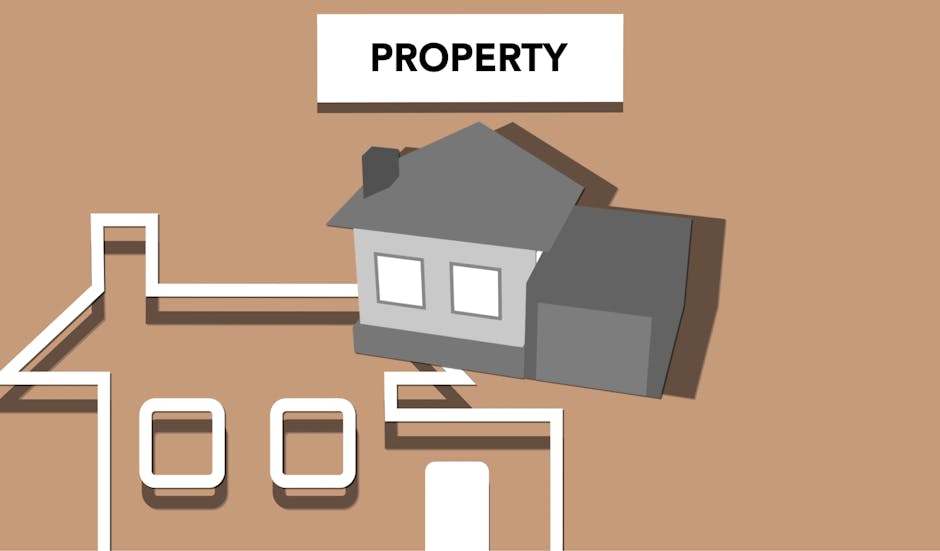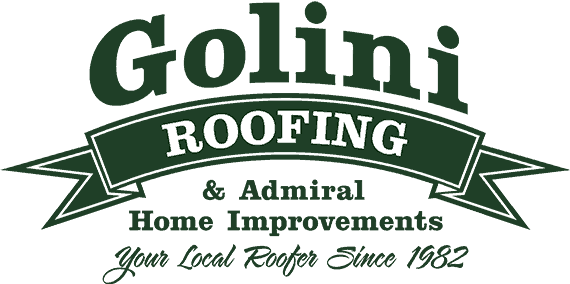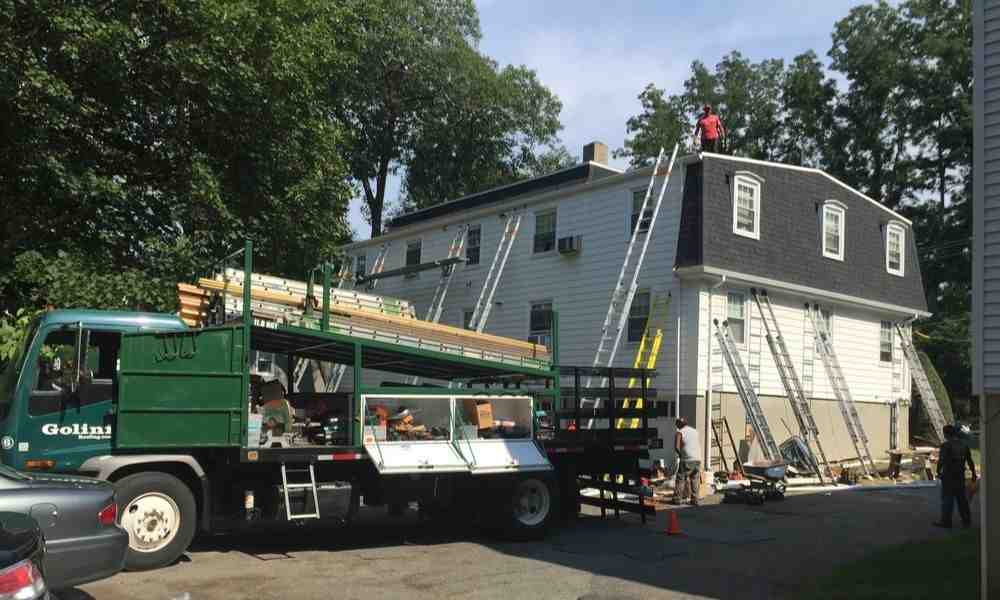How Much Does a Roof Inspection Cost? Top 3 Crucial Factors
Breaking Down the Costs: How Much for a Roof Inspection?
When considering how much does a roof inspection cost, it’s essential to know the specifics. The average cost ranges between $75 and $600 depending on various factors like roof size and inspection complexity. Tarping a roof after an inspection can add an additional $200 to $1,300 for temporary fixes until permanent repairs are made.
Investing in regular roof inspections is more crucial than many homeowners realize. Early detection of minor issues can prevent costly repairs down the line and help in maintaining the warranty on your roofing materials. Regular inspections also uphold the value of your home, as a well-maintained roof is an attractive feature for potential buyers.
I’m Jack Golini, the owner of Golini Roofing with over 35 years of experience in roof inspections and replacements. Here at Golini Roofing, we strive to provide homeowners with clear and accurate information about how much does a roof inspection cost and more.

Simple guide to how much does a roof inspection cost:
– are roof inspections free
– how much are roof inspections
Why Are Roof Inspections Important?
Regular roof inspections are essential for maintaining the health of your home. Here’s why:
Early Detection
Catching minor issues early can save you a lot of money. Small problems like cracked shingles or minor leaks can be fixed before they turn into costly repairs.
For example, a small leak caught early might cost you $150 to fix. But if left unchecked, it could lead to water damage, mold, and a repair bill in the thousands.
Warranty Compliance
Many roofing materials come with warranties. However, these warranties often require regular inspections to stay valid. Skipping inspections could void your warranty, leaving you to cover the full cost of any repairs or replacements.
Longevity
Routine inspections can extend the lifespan of your roof. By addressing wear and tear promptly, you can delay the need for a full roof replacement. According to experts, proper maintenance can extend a roof’s life by up to 50%.
Home Value
A well-maintained roof boosts your home’s curb appeal and market value. Potential buyers are more likely to pay top dollar for a home with a roof in excellent condition. Regular inspections ensure your roof remains in top shape, making your home more attractive to buyers.

Peace of Mind
Knowing your roof is in good condition gives you peace of mind. You won’t have to worry about leaks or structural issues, allowing you to enjoy your home without stress.
Energy Efficiency
A well-maintained roof contributes to energy efficiency by preventing drafts and leaks. This can lower your heating and cooling costs, saving you money on energy bills.
Next, we’ll dive into the factors that affect the cost of a roof inspection, helping you understand what to expect when budgeting for this essential service.
Factors Affecting Roof Inspection Costs
When asking, how much does a roof inspection cost, several factors come into play. Let’s break down the key elements that influence the cost:
Roof Size
The larger the roof, the more time and effort it takes to inspect. This naturally increases the cost. A bigger roof may also require additional team members or specialized equipment.
Example: Inspecting a 3,000 square foot roof will cost more than a 1,500 square foot roof because it involves more labor and time.
Roof Complexity
Complex roofs with multiple slopes, dormers, or skylights are more challenging to inspect. These features require extra attention and time, driving up the inspection cost.
Example: A roof with several dormers and skylights will cost more to inspect than a simple, flat roof due to the added complexity.
Location
Where you live can significantly impact the cost of a roof inspection. Regional labor costs and market conditions vary, influencing the overall price.
Example: In urban areas with high living costs, you can expect to pay more for a roof inspection than in rural areas.
Inspector’s Expertise
The experience and specialized knowledge of the inspector also affect the cost. Highly experienced inspectors may charge more but offer a more thorough and reliable assessment.
Example: An inspector with 20 years of experience and specialized certifications will likely charge more than a less experienced inspector.
Roof Accessibility
Accessibility is another critical factor. Steeper roofs or multi-story homes make the inspection more hazardous and time-consuming, often requiring additional safety measures or equipment.
Example: Inspecting a steep, multi-story roof may require a drone or infrared technology, increasing the overall cost.
Next, let’s explore the different types of roof inspections and their costs, helping you choose the best option for your needs.
How Much Does a Roof Inspection Cost?
When asking, how much does a roof inspection cost, consider the type of inspection and the specifics of your roof. Let’s break down the costs for different scenarios.
Basic Inspection Costs
For a straightforward, basic roof inspection, you can expect to pay between $150 and $350. This range typically covers single-family homes with easily accessible roofs.
- What’s Included: A professional will climb onto your roof and inspect for visible damage, missing shingles, and other common issues.
- Average Cost: The national average for this type of inspection is around $235.
Complex Roof Inspection Costs
If your roof is larger or more complex, the inspection will naturally cost more. For these types of roofs, you can expect to pay between $300 and $600.
- What’s Included: More time-consuming inspections that might involve multiple slopes, dormers, or skylights. These features require extra attention and potentially additional team members.
- Example: A roof with several dormers and skylights will cost more to inspect than a simple, flat roof due to the added complexity.
Expert Inspector Costs
Hiring an expert or specialized inspector can increase the cost significantly. For highly experienced inspectors or those using advanced technology, you can expect to pay between $400 and $800.
- What’s Included: Specialized inspectors may use infrared technology or drones to get a comprehensive view of your roof’s condition.
- Why It’s Worth It: These inspectors offer a more thorough and reliable assessment, which can be particularly valuable if you suspect hidden issues.

Next, let’s explore the different types of roof inspections and their costs, helping you choose the best option for your needs.
Types of Roof Inspections
When it comes to roof inspections, there are three main types: physical inspections, drone inspections, and infrared inspections. Each type has its own benefits and cost range.
Physical Roof Inspection
A physical roof inspection is the traditional method. It involves a professional climbing a ladder to get a close look at your roof.
- Cost: Between $75 and $200
- Method: A trained professional physically examines the roof’s materials and condition.
- Benefits: The inspector can touch the surface, confirm conditions like dryness or moisture, and assess how the roof feels to walk on.
This method is ideal for flat or slightly sloped roofs that are easily accessible. It’s also the most affordable option.
Drone Roof Inspection
A drone roof inspection uses a camera-equipped drone to capture aerial footage of your roof.
- Cost: Between $150 and $400
- Method: A drone flies over your roof, taking detailed images and videos.
- Benefits: Great for steep or hard-to-reach roofs, providing a comprehensive view without the need for anyone to climb.
Drone inspections are becoming more common and are useful for roofs that are structurally unsound or have steep pitches.
Infrared Roof Inspection
Infrared roof inspections use advanced technology to detect issues that aren’t visible to the naked eye.
- Cost: Between $400 and $600
- Method: Infrared cameras capture thermal images to spot leaks, moisture, and other hidden problems.
- Benefits: Offers the most thorough review, identifying issues that other methods might miss.
This type of inspection is ideal for those who want an in-depth analysis of their roof’s condition. It’s particularly useful for finding hidden leaks and areas where air might be escaping.
Next, let’s explore what to expect during a roof inspection, so you can be fully prepared.
What to Expect During a Roof Inspection
Exterior Inspection
The first step in a roof inspection is the exterior check. The inspector will look for visible damage such as missing shingles, cracked tiles, and flashing issues. Flashing is the material that seals joints and edges on your roof, like around chimneys and skylights. Damaged flashing can lead to leaks, so this is a crucial part of the inspection.
They’ll also check the gutters and downspouts to ensure they are free from debris and securely attached. This helps prevent water from pooling on the roof, which can cause leaks and structural damage.
Interior Inspection
Next, the inspector moves inside your home to look for signs of leaks or water damage. They will check the ceilings and walls for stains or moisture. The attic is another critical area. Inspectors will assess the attic for any signs of mold, damp odors, or insulation issues. These problems can indicate leaks or poor ventilation, which need immediate attention.
Structural Assessment
The structural integrity of your roof is paramount. The inspector will examine the roof for any sagging or deformities. These issues could signal underlying structural problems that need to be addressed. They will also check for signs of wear and tear that could compromise the roof’s strength over time.
Flashing and Ventilation
Proper flashing and ventilation are essential for a watertight and efficient roof. The inspector will ensure that all flashings, vents, and chimneys are correctly installed and functioning. Poor ventilation can lead to moisture buildup, which can damage roofing materials and reduce the roof’s lifespan. Ensuring these elements are in good condition helps maintain a healthy roof.
Recommendations
After the inspection, you will receive a detailed report. This report outlines any issues found and provides recommendations for repairs or maintenance. It will include photographs to illustrate areas of concern, making it easier to understand what needs fixing. The report will also highlight any urgent repairs that should be prioritized to prevent further damage.
By knowing what to expect during a roof inspection, you can be better prepared and understand the importance of each step in maintaining your roof’s health. Next, let’s discuss when you should schedule a roof inspection and why timing matters.
When Do You Need a Roof Inspection?
Home Sale or Purchase
A roof inspection is a must when buying or selling a home. For buyers, it’s crucial to ensure the roof is in good condition and won’t need expensive repairs soon. If the inspection reveals issues, buyers can use this as a negotiation tool to adjust the sale price or request repairs before finalizing the deal.
Sellers, on the other hand, may want to get a roof inspection before listing their house. This way, they can address any problems beforehand, potentially increasing the home’s value and avoiding last-minute negotiations. A clean inspection report can boost buyer confidence and expedite the sale process.
Recent Severe Storm
After a severe storm, it’s wise to inspect your roof for damage. High winds, hail, and fallen tree limbs can cause significant harm, even if it’s not immediately visible. Missing shingles, torn flashing, and dents in metal roofs are common issues following a storm.
Ignoring storm damage can lead to leaks and costly repairs down the line. A professional inspection can identify these problems early, helping you address them before they worsen. Plus, timely documentation of storm damage is often required for insurance claims, making a post-storm inspection doubly important.
Roof Age
Roofs, like all things, have a lifespan. As roofs age, they become more susceptible to wear and tear, requiring more frequent inspections and maintenance. For instance, shingle roofs typically last 20-25 years, while metal roofs can last 40-50 years.
Regular inspections can help extend your roof’s life by catching minor issues before they become major problems. This proactive approach can save you money in the long run and ensure your home remains safe and secure. If your roof is approaching the end of its expected lifespan, consider scheduling more frequent inspections to keep it in optimal condition.
Understanding when to schedule a roof inspection can save you money and prevent headaches. Next, let’s dive into some frequently asked questions about roof inspections to clear up any remaining doubts.
Frequently Asked Questions about Roof Inspections
How often do you need a roof inspection?
According to the National Roofing Contractors Association, homeowners should have their roof professionally inspected twice a year—once in the spring and once in the fall. This helps catch any damage that may have occurred due to seasonal weather changes.
Additionally, it’s crucial to get an inspection after any severe storms. Wind, hail, and falling debris can cause significant damage that might not be immediately visible but can lead to bigger problems if left unchecked.
Does a new roof need to be inspected?
Yes, even a new roof should be inspected. A roof inspection ensures that your new roof is properly installed and sealed to your home. This is important for preventing future issues like leaks and water damage.
An inspection can also help you maintain your roof’s warranty. Many warranties require regular inspections to remain valid, so skipping this step could cost you more in the long run if problems arise.
What is a roof certification?
A roof certification is a document that describes the condition of a roof and provides an estimated lifespan. Contractors usually certify that a roof’s construction and shape will hold for a certain number of years, typically between two to five years.
This certification is not as detailed as a full inspection report but is often used by lenders and home buyers to assess the roof’s condition. It’s important to note that a roof certification is not a warranty. Instead, it’s the opinion of a certified roof inspector on how long the roof is expected to last.
Understanding these FAQs can help you make informed decisions about your roof’s maintenance and longevity. Next, we’ll explore the different types of roof inspections and what you can expect during each one.
Conclusion
Regular roof inspections are essential for maintaining the health of your home. They help detect minor issues before they become major problems, ensuring your roof remains in top condition for years to come.
At Golini Roofing, we understand the importance of these inspections. Our team of experts is dedicated to providing thorough and accurate assessments, so you can have peace of mind knowing your roof is well-cared for.
Investing in regular inspections is not just about immediate fixes; it’s about long-term savings and protecting your home. By catching issues early, you can avoid costly repairs and extend the lifespan of your roof.
Make sure to include roof inspections in your home maintenance plan. Reach out to us at Golini Roofing today, and let’s ensure your roof remains strong and secure for years to come.

